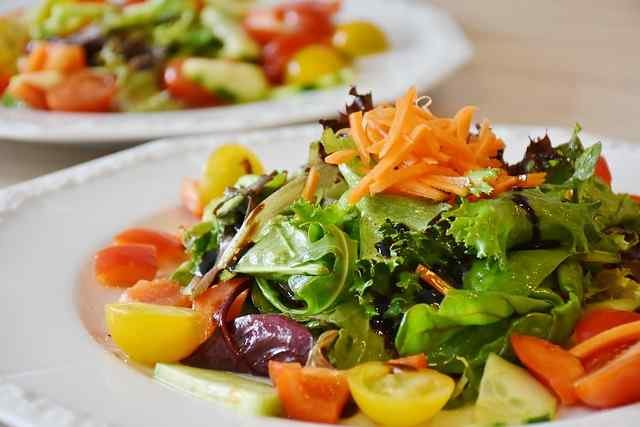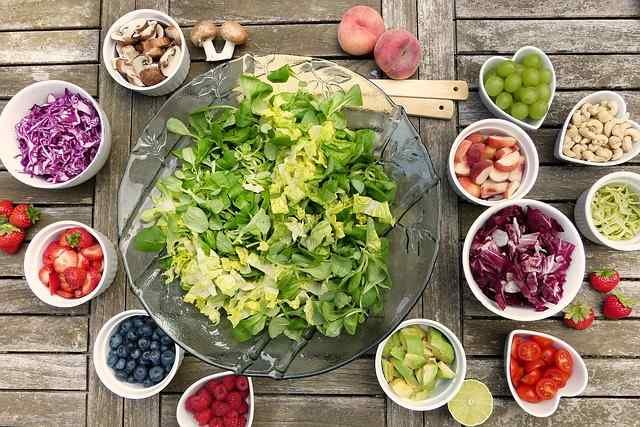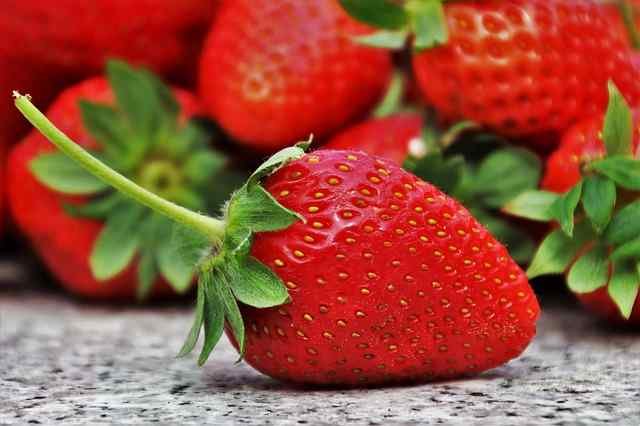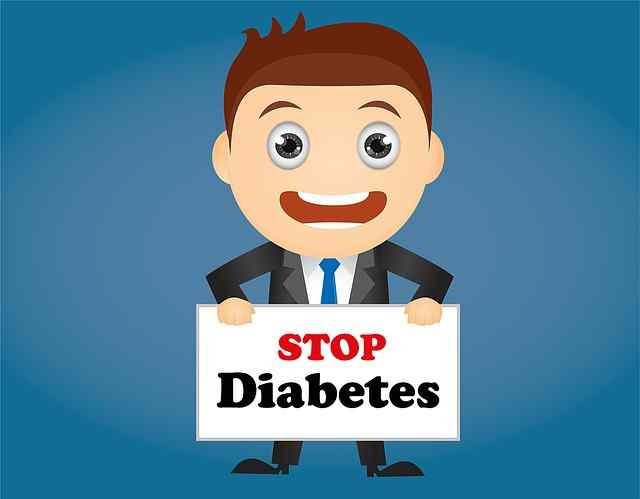I get asked about weight reduction goals a lot or diets for bodybuilding. Individuals wants…
Bodybuilding Keto Diet: Build Muscle and Burn Fat in 2025

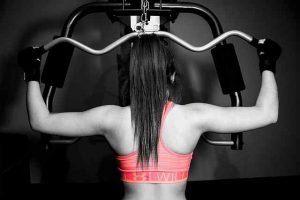 Our goal is to feed you the information required to realize your potential. There’s no way to construct a championship physique without a plans to complement your hardcore workouts intense. This article will assist you construct diet plans to complement your hardcore workouts. Use this seven measure nutrition primer that is handy to construct the bodybuilding diet that is customized to fit your goals and aspirations.
Our goal is to feed you the information required to realize your potential. There’s no way to construct a championship physique without a plans to complement your hardcore workouts intense. This article will assist you construct diet plans to complement your hardcore workouts. Use this seven measure nutrition primer that is handy to construct the bodybuilding diet that is customized to fit your goals and aspirations.
The Keto Bodybuilding Guide Diet: Build Muscle and Burn Fat
Bodybuilding and the ketogenic diet might seem like an unlikely pair, but when combined correctly, they can create a powerful synergy for muscle growth and fat loss. This comprehensive guide will explore how to successfully build muscle on a keto nutrient-rich diet, providing you with the knowledge and tools to transform your physique and achieve your bodybuilding goals.
Understanding the Ketogenic Diet for Bodybuilding
The ketogenic diet, is a high-fat, moderate-protein, and low-carb eating plan that has gained significant popularity in recent years. While it’s often associated with weight loss, the low-carb-high-fat eating pattern can also be an effective tool for bodybuilding when approached correctly.
Suggested Article :- Bodybuilding On Keto Diet
What is a Keto Diet?
A ketogenic diet typically consists of:
– 70-75% of calories from fat
– 20-25% of calories from protein
– 5-10% of calories from carbohydrates
This macronutrient distribution forces the body to enter a state of ketosis, where it primarily burns fat for fuel instead of carbohydrates. While this can be beneficial for fat loss, it presents unique challenges for those looking to build muscle.
The Benefits of Keto for Bodybuilding
Despite the challenges, there are several potential benefits to following a ketogenic diet for bodybuilding:
- Enhanced fat loss: The keto diet can help you achieve a leaner physique by promoting rapid fat loss.
2. Improved insulin sensitivity: This can lead to better nutrient partitioning and more efficient muscle growth.
3. Stable energy levels: Once adapted, many people report increased energy and focus during workouts.
4. Reduced inflammation: A ketogenic diet can help reduce inflammation in the body, potentially improving recovery.
Building Muscle on the Keto Diet: Is It Possible?
One of the most common questions surrounding this diet is whether it’s possible to build muscle on such a low-carb diet. The short answer is yes, but it requires careful planning and execution.
The relationship between skeletal muscle and a high-protein diet is crucial in the context of keto bodybuilding. Skeletal muscle, which is responsible for movement and strength, requires adequate protein intake for growth and repair.
On a ketogenic diet, where carbohydrates are severely restricted, protein becomes even more important for maintaining and increasing muscle integrity and volume. A high-protein diet provides the essential amino acids needed for muscle protein synthesis, which is the process of building new muscle fibers.
For keto dieters and bodybuilders, consuming sufficient protein (typically 1.6-2.2 grams per kilogram of body weight) helps preserve lean muscle mass while the body is using fat for fuel. This is particularly important because the ketogenic state can potentially lead to some muscle breakdown if protein intake is inadequate.
By following a high-protein, ketogenic diet, bodybuilders can stimulate muscle growth, improve recovery, and maintain their hard-earned muscles while benefiting from the fat-burning effects of ketosis. However, protein intake should be carefully balanced to avoid excessive consumption, which could potentially interfere with ketosis by converting excess protein to glucose through gluconeogenesis.
Suggested Article :- Weight Loss Keto Diet

The Science Behind Building Muscle on Keto
To build muscle, your body needs to be in an anabolic state, which is traditionally associated with higher carbohydrate intake. However, research has shown that it’s possible to stimulate muscle protein synthesis and achieve muscle hypertrophy on a ketogenic diet.
A study published in the Journal of the International Society of Sports Nutrition found that resistance-trained men following a ketogenic diet for 11 weeks were able to increase lean body mass and strength while simultaneously reducing body fat.
Overcoming the Challenges of Keto Bodybuilding
Increasing muscle integrity and volume on a keto diet comes with its own set of challenges:
1. Lower muscle glycogen: Carbohydrates are typically used to replenish metabolic fuel for your muscles, which can affect performance during high-intensity workouts.
2. Potential muscle breakdown: In the absence of carbohydrates, the body may break down muscle tissue for energy.
3. Difficulty in gaining weight: The satiating effect of fat can make it challenging to consume enough calories for muscle gain.
To overcome these challenges, it’s essential to follow a well-designed meal strategy combined with a physical training program.
Creating the Perfect Keto Fitness Meal Plan
A successful diet to gain muscle on keto requires careful attention to macronutrient ratios, calorie intake, and food quality. Here’s how to create a meal plan that supports your muscle-building goals while maintaining ketosis.
Calculating Your Macros for Keto Bodybuilding
To build muscle on a keto fitness plan, you’ll need to adjust your macronutrient ratios slightly from a standard ketogenic diet:
– Fat: 65-70% of total calories
– Protein: 25-30% of total calories
– Carbohydrates: 5-10% of total calories
Protein intake is particularly important for muscle growth. Aim for 1.6-2.2 grams of protein per kilogram of body weight (or 0.7-1 gram per pound).
Sample Keto Bodybuilding Meal Plan
Here’s an example of a keto nutrient-rich menu plan:
Meal 1 (Breakfast):
– 3 whole eggs
– 2 oz. salmon
– 1 cup spinach cooked in 1 tbsp coconut oil
Meal 2 (Snack):
– 1 oz. almonds
– 1 oz. cheese
Meal 3 (Lunch):
– 6 oz. chicken thigh
– 2 cups mixed greens
– 1/2 avocado
– 2 tbsp olive oil dressing
Meal 4 (Pre-workout):
– 1 scoop whey protein
– 1 tbsp MCT oil
Meal 5 (Post-workout):
– 6 oz. lean beef
– 1 cup broccoli
– 1 tbsp butter
Meal 6 (Dinner):
– 6 oz. fatty fish (e.g., salmon or mackerel)
– 2 cups cauliflower rice
– 1 tbsp coconut oil
This meal plan provides approximately 2,500 calories, with 70% from fat, 25% from protein, and 5% from carbohydrates. Adjust portion sizes based on your individual calorie needs.
Best Keto Foods for Bodybuilding
Include these nutrient-dense foods in your keto workout diet:
- Fatty fish (salmon, mackerel, sardines)
2. Grass-fed beef and lamb
3. Free-range poultry and eggs
4. Avocados
5. Nuts and seeds
6. Olive oil and coconut oil
7. Low-carb vegetables (spinach, kale, broccoli)
8. Full-fat dairy (if tolerated)
Optimizing Your Training for Keto Bodybuilding
To maximize muscle growth on a keto fitness plan, you’ll need to adjust your training approach slightly.
Training Principles for Keto Bodybuilding Success
- Focus on compound movements: Exercises like squats, deadlifts, bench presses, and rows should form the core of your program.
- Incorporate progressive overload: Gradually increase weight, reps, or sets to continually challenge your muscles.
- Moderate volume: While high-volume training can be effective for muscle growth, it may be more challenging on a keto diet due to lower glycogen stores. Aim for 3-4 sets per exercise with 8-12 reps.
- Adequate rest between sets: Allow for slightly longer rest periods (2-3 minutes) to ensure proper recovery between sets.
- Implement carb cycling or targeted ketogenic diet (TKD): Some bodybuilders find success with strategically timing carbohydrate intake around workouts to improve performance and muscle growth.
Sample Bodybuilding Workout Routine
Here’s a sample 4-day split routine for if you want to build muscle on a high-fat diet like keto:
Day 1: Chest and Triceps
– Barbell Bench Press: 4 sets x 8-10 reps
– Incline Dumbbell Press: 3 sets x 10-12 reps
– Cable Flyes: 3 sets x 12-15 reps
– Close-Grip Bench Press: 3 sets x 8-10 reps
– Tricep Pushdowns: 3 sets x 12-15 reps
Day 2: Back and Biceps
– Deadlifts: 4 sets x 6-8 reps
– Pull-Ups or Lat Pulldowns: 3 sets x 8-10 reps
– Bent-Over Rows: 3 sets x 10-12 reps
– Face Pulls: 3 sets x 12-15 reps
– Barbell Curls: 3 sets x 8-10 reps
– Hammer Curls: 3 sets x 10-12 reps
Day 3: Rest or Light Cardio
Day 4: Legs and Shoulders
– Squats: 4 sets x 8-10 reps
– Romanian Deadlifts: 3 sets x 10-12 reps
– Leg Press: 3 sets x 12-15 reps
– Military Press: 4 sets x 8-10 reps
– Lateral Raises: 3 sets x 12-15 reps
– Rear Delt Flyes: 3 sets x 12-15 reps
Day 5: Rest or Light Cardio
Supplements to Support Your Keto Resistance Training Journey
While a well-designed keto diet should provide most of the nutrients you need, certain supplements can be beneficial for keto bodybuilders:
- Creatine: Helps improve strength and muscle mass.
2. Electrolytes: Essential for maintaining proper hydration and avoiding the “keto flu.”
3. MCT Oil: Provides readily available energy and may help maintain ketosis.
4. Whey Protein: A high-quality protein source to support muscle increase.
5. Omega-3 Fatty Acids: Helps reduce inflammation and support overall health.
6. Vitamin D: Important for muscle function and overall health, especially if you have limited sun exposure.
Common Mistakes to Avoid
To ensure success following the keto diet, avoid these common pitfalls:
- Not eating enough calories: Make sure you’re in a caloric surplus to support muscle growth.
2. Neglecting protein intake: Adequate protein is crucial for muscle building and recovery.
3. Avoiding all carbs: Some strategic carb intake around workouts can be beneficial.
4. Overtraining: Listen to your body and allow for proper recovery between sessions.
5. Ignoring micronutrients: Focus on nutrient-dense foods to avoid deficiencies.
6. Not staying hydrated: Proper hydration is essential, especially on a keto diet.
Tracking Progress and Adjusting Your Keto Diet Meal Plan
To ensure you’re making progress towards your bodybuilding goals while following a ketogenic diet, it’s essential to track your progress and make adjustments as needed.
Methods for Tracking Progress
- Body composition measurements: Use methods like DEXA scans, bioelectrical impedance, or skinfold calipers to track changes in body fat percentage and lean body mass.
- Progress photos: Take weekly photos in the same lighting and poses to visually track changes in your physique.
- Strength measurements: Keep a log of your lifts to ensure you’re progressively overloading your muscles.
- Blood ketone levels: Use a blood ketone meter to ensure you’re maintaining ketosis.
- Energy levels and performance: Monitor how you feel during workouts and throughout the day.
Making Adjustments to Your Meal Plan for Bodybuilding
Based on your progress, you may need to make adjustments to your diet or training:
- Increase calories: If you’re not gaining muscle, gradually increase your calorie intake, primarily from fat sources.
- Adjust protein intake: If you’re losing muscle integrity, consider increasing your protein intake slightly.
- Implement carb cycling: Experiment with strategically timed carbohydrate intake to improve workout performance and improve muscle increase.
- Modify training volume: If you’re experiencing fatigue or decreased performance, consider reducing training volume temporarily.
- Address nutrient deficiencies: If you’re experiencing symptoms of nutrient deficiencies, consider adding targeted supplements or adjusting your food choices.
The Future of Low Carb Bodybuilding: Emerging Research and Trends
As the popularity of both ketogenic diets and resistance training continues to grow, researchers are increasingly studying the effects of a ketogenic diet on body composition and athletic performance.
Recent studies have shown promising results for the use of ketogenic diets in improving body composition and maintaining muscle mass during weight loss phases. However, more research is needed to fully understand the long-term effects of keto dieting on muscle increase and athletic performance.
Some emerging trends in diet plans for body builders include:
- Cyclical Ketogenic Diet (CKD): This approach involves periods of strict keto eating followed by brief carb-loading phases to replenish muscle glycogen.
- Exogenous Ketones: Supplemental ketones that may help improve performance and maintain ketosis during higher-carb periods.
- Keto-adaptation strategies: Techniques to improve the body’s fat adaptation and maintain performance on a low-carb diet.
- Personalized approaches: Tailoring the keto fitness plan to individual genetic profiles and metabolic needs for optimal results.
As research in this area continues to evolve, we can expect to see more refined strategies for combining the benefits of ketogenic dieting with the muscle-building goals of bodybuilding.
Frequently Asked Questions about Keto Bodybuilder Diets
To help you better understand the intricacies of combining a ketogenic diet with bodybuilding, here are some commonly asked questions and their answers:
Can I really increase muscle on a keto and low carb diet?
Yes, gaining muscle on a keto and low carb diet is possible. While traditional resistance training often emphasizes high carbohydrate intake, research has shown that you can increase muscle on a ketogenic diet. The key is to ensure adequate protein intake, maintain a caloric surplus, and follow a well-designed bodybuilding journey. Your body burns fat for energy on a keto diet, which can support muscle growth when combined with proper strength training.
How does a ketogenic diet affect body composition for bodybuilders?
A ketogenic diet can have a significant impact on body composition for bodybuilders. By following the ketogenic diet, many athletes report decreased body fat percentage while maintaining or even increasing lean muscle mass. The high fat intake and moderate protein consumption can help preserve muscle tissue while promoting fat loss. However, the effects of ketogenic dieting will vary among individuals, and it’s essential to monitor your progress and adjust your approach as needed.
How much protein do I need per pound of body weight on a keto bodybuilding diet?
On a keto nutrient-rich diet, aim for about 1.0 to 1.2 grams of protein per pound of lean body mass. This range is typically sufficient to support muscle growth and recovery while staying within the parameters of a ketogenic diet. For example, if you weigh 180 pounds, consume between 180 to 216 grams of protein daily. It’s important not to overdo protein intake, as excess protein can be converted to glucose and potentially kick you out of ketosis.
Can I build muscle without carbs on a keto diet?
What are some common mistakes keto diet bodybuilders make?
Some common keto mistakes that bodybuilders make include:
- Not eating enough calories
2. Neglecting micronutrients
3. Overdoing protein intake
4. Not allowing enough time for keto-adaptation
5. Failing to adjust electrolyte intake
6. Neglecting resistance training in favor of cardio
7. Not properly tracking macronutrients
To avoid these pitfalls, carefully plan your meals, track your intake, and be patient as your body adapts to the new diet.
How can I increase my ability to build muscle on a keto diet?
To enhance your ability to build muscle on a keto diet:
- Ensure you’re in a caloric surplus
2. Consume adequate protein (1.0-1.2g per pound of body weight)
3. Focus on compound exercises in your training
4. Properly time your meals around workouts
5. Consider using targeted ketogenic diet (TKD) or cyclical ketogenic diet (CKD) approaches
6. Supplement with creatine and electrolytes
7. Prioritize sleep and recovery
8. Be consistent with your diet and training
Are there any recommendations for natural bodybuilding contest preparation on keto?
For natural bodybuilding contest preparation on a keto diet:
- Start your contest prep early, as fat loss may be slower on keto
2. Gradually reduce calories to preserve muscle integrity
3. Maintain high protein intake throughout the prep
4. Consider carb cycling or targeted keto approaches as the contest nears
5. Pay extra attention to electrolyte balance and hydration
6. Use resistance training to maintain muscle volume
7. Incorporate refeed days if needed to support performance
8. Work with a coach experienced in keto contest prep
Remember that the effects of a low-carbohydrate diet can vary, so monitor your progress closely and adjust as needed.
How long does it take to see results when following a keto bodybuilder’s diet?
Expect to see initial changes in body composition within the first 2-4 weeks as your body adapts into fat-burning mode. Significant muscle gains typically become noticeable after 8-12 weeks of consistent training and proper nutrition. Remember that building muscle is a gradual process, regardless of the type of diet you follow.
Can I use the keto diet to increase muscle mass and lose weight simultaneously?
Yes, it is possible to use the keto diet to increase muscle and lose weight simultaneously, especially for beginners or those returning to training after a break. This process, known as body recomposition, can be achieved through a well-designed keto meal intake strategy and resistance training program. However, it’s generally more challenging for advanced bodybuilders or athletes. In these cases, it may be more effective to focus on one goal at a time – either cutting fat or building muscle.
Conclusion
Bodybuilding on a keto diet is not only possible but can be highly effective for those willing to put in the effort and attention to detail required. By carefully balancing your macronutrients, following a well-designed meal plan, and adapting your training approach, you can successfully build muscle while enjoying the benefits of a ketogenic lifestyle.
Remember that every individual’s response to a ketogenic diet can vary, so it’s essential to listen to your body and make adjustments as needed. With patience, persistence, and the right approach, you can achieve impressive results in your resistance training journey.
Whether you’re a seasoned bodybuilder looking to experiment with a new dietary approach or a keto enthusiast interested in building muscle, the principles outlined in this keto body enhancement guide will help you build muscle and achieve your physique goals.
